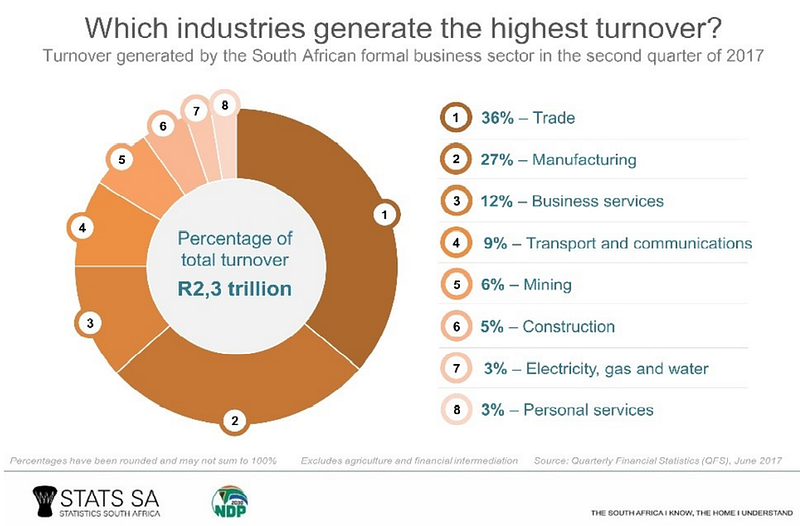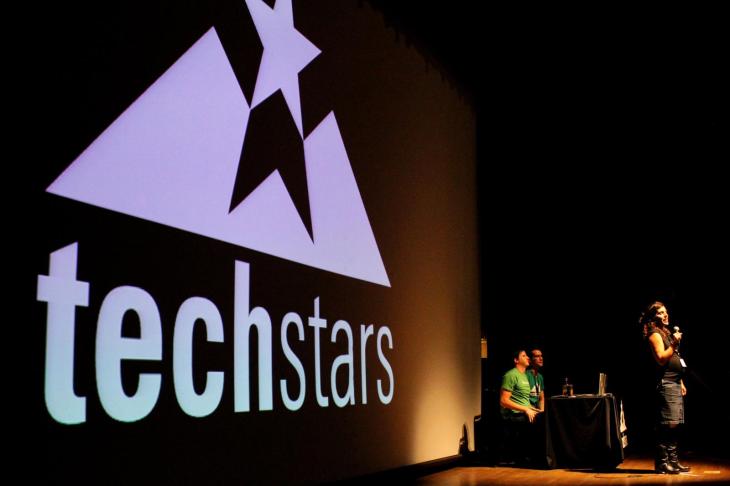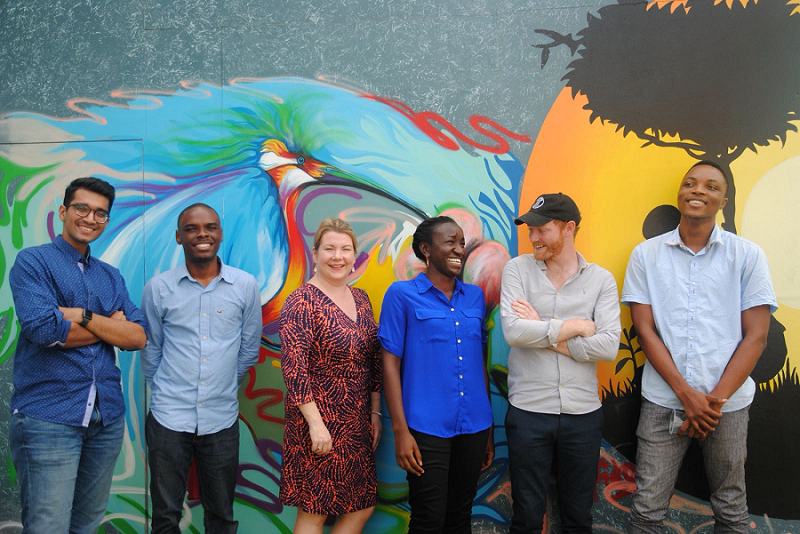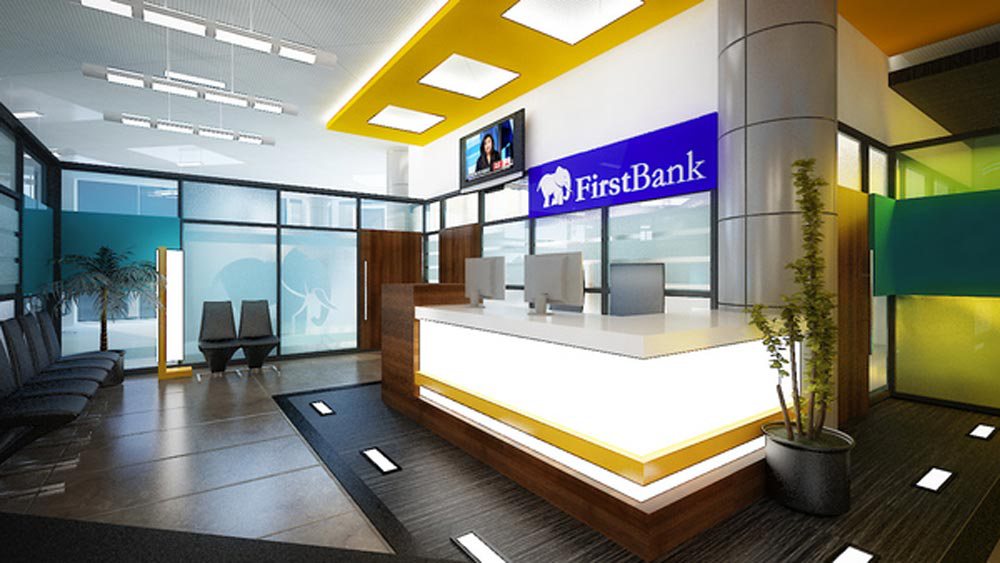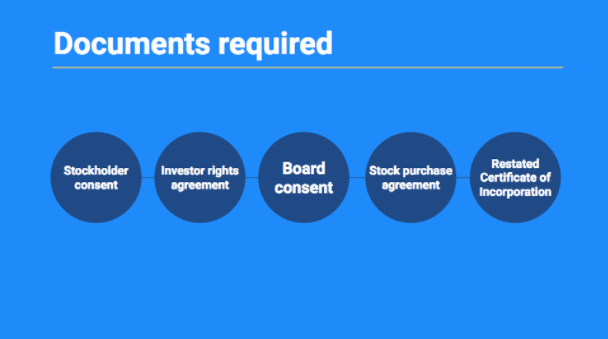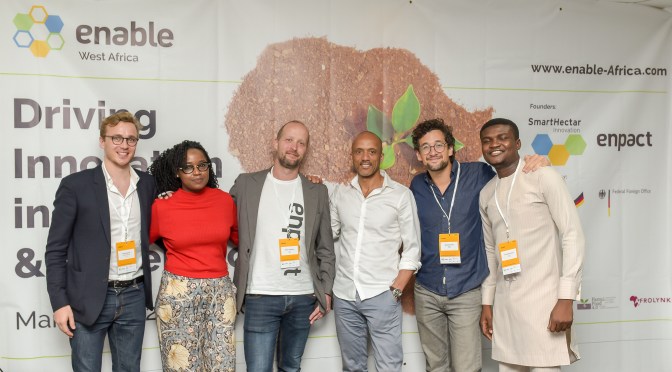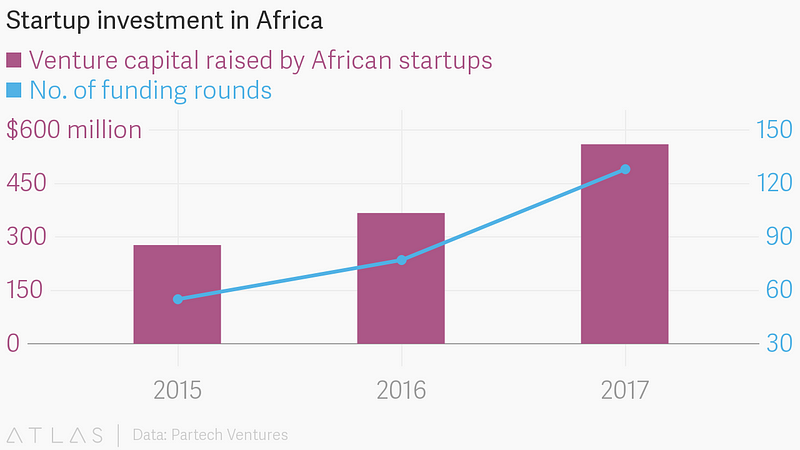How Homeless Cameron Chell Built More Than Eight Startups Which Have All Been Successful
Looking for an entrepreneur with the Midas Touch for startups? Cameron Chell, the CEO of his newest startup ICOx Innovations, which is one of only a small handful of companies that have the ability to address the demand for both branded currency and blockchain platform integrations, can fit into that description.
Son of a former rancher dad, who was also the local butcher, and a mom who was the local florist in a very, very small Canadian town of Fort Macleod, southern Alberta, Canada, Cameron Chell told Alejandro Cramades that he had not known anything apart from entrepreneurship all his life.

‘‘I’ve just never known anything else,’’ he said. ‘‘Both my parents were entrepreneurs, and back in those days, they didn’t call them entrepreneurs. They were small business owners. They worked seven days a week. We went to church on Sundays, but they still worked. All three of those industries or those businesses, you had to work every day. I just don’t know anything else. So, I feel very blessed and lucky to have been brought up that way.’’
So Many Startups In His Portfolio
Cameron Chell said he had built and exited eight to nine startups.
‘‘You know,’’ he said. ‘‘I haven’t actually kept track, but it would be probably in the range of somewhere between eight and nine. And it depends on what you call an exit too. If you call them partial exits or exits whereby they’ve gone public and were part of the team, and have been bought two or three times before it’s gone public, I would say a dozen at least. But in terms of just pure, pure like, “We built it once and sold it to one buyer then it would be six, I believe if I’m not mistaken.’’
Cameron built his first tech company, FutureLink. In terms of what FutureLink did, its first version would be called a cloud computing application.
FutureLink went on to work with a number of companies from Oracle and Sun, to Microsoft, IBM, and Compaq. It achieved around a $3.2 billion dollar market cap, back when a billion dollars was worth its bargain.
‘‘FutureLink, I would love to say, was purely my idea,’’ he said. ‘‘It was actually my brother-in-law who came up with the notion of being able to run apps in server farms and have the app be accessed via the internet. This brand new thing called the internet. This is back in ’94, ’95 when we were starting to talk about it. In ’96 when we launched it.’’
Cameron Chell said they were basically trying to enhance both the upgrade experience for users on FutureLink so that people wouldn’t have to go into the computer land or the computer store at that time and buy 3 1/2″ decks and load them into a computer.
‘‘Well, why do you even have to do all that?’’ He said. ‘‘Why aren’t you just accessing the software that sits on the server somewhere as well, as mobile computing was really starting to make its mark? Like, why do I need to carry a laptop? Why don’t we login via what we were calling it at that time a thin client? We were working with a number of companies, everywhere from Oracle and Sun, and Microsoft, and IBM, and Compact because there was this computer utility thin client kind of revolution that was coming. We actually dubbed the industry application service provider industry.’’
At the same time, Chell was also running similar companies, such as ASP Industry Consortium, and was heavily committed to engineering. This could be so dizzying considering that he was trying to run successful companies and not just companies for companies’ sake. Chell said he was usually highly effective if he had a couple of things going on at the same time
‘‘We launched the ASP Industry Consortium, and that was really a self-serving mechanism to try to get adoption in the industry, but also to try to bring some standards to the space,’’ he said. ‘‘We had positioned FutureLink as one of the founding companies, and I was lucky enough to take on the vice chairman role there and really became the promoter of that. Again, We also started a company called Engyro which went through a name change. Eventually, that company was sold off to Microsoft separately. I think in true serial founder fashion, I tend to work better if I’ve got a couple of things going on at the same time.’’
However, his multitasking turned out to be successful because according to him, he was very lucky to work with very accomplished teams.
‘‘They let me lead some of the strategic direction, and then they handle a bunch of the coding, the product design. I like to be involved on the architect side of things. But once we get a layer deeper, I’m either out of time or out of skill,’’ he said.
Chell said for each of these initiatives or startups he had co-founders, but he was careful about the roles they occupied in his startups.
‘‘In every single case, I’ve had co-founders,’’ he said. ‘‘I would say in the early days, much to my own character defect, I would stand out in the front, and I would say, “I was the founder, and the reality is I wasn’t.” I wasn’t the only founder. I think I was a really an important part at times to make a number of these organizations work, but not everything has worked by any stretch of the imagination. There has always been, not just two co-founders, but really a co-founding team when we really get honest about that. The co-founders I choose tend to be either technical or operational. Previous to this, they were much more finance co-founders. My role tends to have skewed over the years to a much more finance role and a strategic direction role.
So, the co-founders that I mix with tend to be more technical, more marketing and a bit more operational.
The Outcome of Chell’s First Set of Startups
Although Chell also built Engyro in the early days, it ended up pivoting to a billing payment system in particular for the Dotnet World.
‘‘It went through a couple of iterations to get to that point, but that’s where it ended up,’’ he said. ‘‘It was two management teams after us. We were still involved strategically, but it was two management teams after our initial initiative that eventually got that sold off to Microsoft. I don’t recall the amount. It wasn’t a huge exit. I think it was probably an 18-million-dollar total sale. We weren’t large shareholders at that time.
‘‘FutureLink was very successful and quite fortunate for us,’’he said. ‘‘It ended up having about a 3.2-billion-dollar market cap. This is back when a billion dollars was not what a billion dollars is today. It seems like there are a lot of companies with a billion-dollar market evaluations. Not to take anything away from any of them, but it was a really big deal for us. So, we were a company that had Fortune 500 customers. Our customers were people like Microsoft, Great Plains, and Citrix.’’
Chell said all of these were happening at great revenue base.
‘‘Then there was this other thing happening that we were relatively kind of almost ignorant to which was called the Dotcom,’’ he said. ‘‘We caught a hold of it, and we just ended up being a startup that had some fundamentals behind it and with beneficiaries of a great market. We were building something that we were really passionate about.’’
What Happened to FutureLink, Cameron Chell’s First Company
To get the picture clearer, Chell said he hired a new chairman for FutureLink at the insistence of the financiers of the company.
‘‘He came out of the Telco industry,’’ Chell said. ‘‘He came in, and unbeknownst to me, when he took on the chairman role, he actually started acting like a proper chairman. I was quite insulted by that. He obviously didn’t understand who I was or how important I was as a 20-some-year-old founder and CEO of this company.’’
At that point, events took a new twist.
‘‘What ensued was me getting fired for being an arrogant little ****. It was absolutely one of the best things that could have happened to me, but I was still too stubborn to recognize what a great lesson and opportunity it was. I took my arrogance and channeled it completely inappropriately; sued the company, and started a competing company, and did all the absolute junior mistakes that one would expect from a complete *** ****, which is what I was at the time. The other thing that was not of benefit, though I thought it was great at the time, was because I was fired, a bunch of my stock nested; a bunch of my stock didn’t nest; some of it did, and I was liquid. I was liquid before the crash.’’
Chell said events were not entirely bad after that ordeal.
‘‘So, I was able to garner a little cash, not as much as one would think, but I was able to get a decent little nest egg out of it which gave me some firepower to start a bunch more companies and create more problems for myself ultimately,’’ he said. ‘‘But if it wasn’t for that, I’m sure I would have never sold the share and rode the thing right into the ground. So, ultimately, the company did fail in the Dotcom boom, though I can’t take credit for that. I’m not saying it would have succeeded if I had stayed at the helm, but it was a high-flying Dotcom. All that being said, I do want to point out that this was a company that had approximately, if I’m not mistaken, about 80 million dollars in revenue.’’
Here Is Why Chell Could Manage All of These Startups At A Time
Cameron Chell said he was probably all successful because of the lean startup approach he had adopted at his startups.
‘‘We were, without knowing it, very lean-centric,’’ he said. ‘‘And of course, it wasn’t called lean then. It was basically called survival back then, and it wasn’t really an accepted practice in terms of how you built startups. The accepted practice of the day was raise a bunch of money, build a whole bunch of infrastructure, and hope customers show up. We were never huge, huge capital raisers. We were builders first, which I think is often quite characteristic of founders.’’
Chell said his startups would usually end up getting a customer first, and then build the product around their requirement.
‘‘That’s just how we’ve built things always,’’ he said. ‘‘As Eric Ries and that whole lean startup moment really came in, it was really exciting and familiar to see. We didn’t even recognize that that’s what we were doing. So, we’d become pretty strong proponents of what that is and how that works. It was interesting to see somebody from outside our organization teaching us what we were already doing.’’
‘‘I realized that I wasn’t in control of things’’
For Cameron Chell, the bombing of the World Trade Center on September 11, 2001, changed the way he previously viewed life entirely.
‘‘I went on and kept building a bunch more companies. Some were moderately successful. Some were complete disasters,’’ he said. ‘‘But in 2001, I was at the base of the World Trade Center on 9/11, and, my life, whether I knew it or not at the time, was headed for a major catastrophe because I was just running completely out of control, and just totally self-centered. By the end of the day on 9/11, I was in complete disarray wondering why I was alive, and other people weren’t. It was probably the first chunk of my self-centeredness being at least somewhat corrected. I realized that I wasn’t in control of things.’’
Chell’s life took a new downward turn afterward. He found himself suddenly homeless.
‘‘So, all this great value and brilliance that I thought I was creating, I really started to question it,’’ he said. ‘‘Within a very short time, I was drinking heavily, and within a very short time, I was abusing drugs. Within about two years, I was completely bankrupt and desolate. Within three years, I was living on the street, and I spent the next seven years after that working to get clean and spent a lot of time in the street, and rehabs, and such to get my life back on track, which by the grace of God and a lot of great people, I’ve now been clean for over 10 years.’’
Chell was literally watching his life slip out of his hands. At a time, he would make up his mind to get back on track, but that would not hold.
‘‘I wish that I could tell you that moment,’’ he said. ‘‘That moment happened two dozen times for me, where I said, “This is it. I’m done. I’m going to get better. I’m going to fix it.” Even two dozen times is a joke. I’d wake up every morning or be awake for three days straight, and every 10 minutes I’d be like, “Okay. That’s it. I’m done. I’m done.” An hour later I’m off running again, just doing whatever I could to get my fix. So, I would love to say it was willpower and I decided I was going to do it, and there was this great burning bush or something, and it wasn’t. What happened was a lucky situation. It didn’t seem lucky at the time where I was in a lot of danger. I was being pursued by a gang. I lived on the street, and I was getting beat up by them.’’
Chell said he was in the streets for a consistent four years that was on and off.
‘‘Like in and out,’’ he said. ‘‘Actually, my total round was about a decade, just a little bit over a decade, about 12 years from when I really slipped deeply until I finally got myself cleaned. I didn’t get myself cleaned up, but I was finally able to get cleaned up, which is quite a short timeframe for somebody that goes really deep and lives on the street because most people don’t come back from the street. But there were four years in there where I was just completely gone, un-findable.’’
Long story short, Chell had to get through a few days without DOC, the drug of his choice.
‘‘I ended up getting through 10 days without it while getting away from this gang,’’ he said. ‘‘ I just didn’t really have a choice. I hit rock bottom. That’s the bottom line. I didn’t have a choice to use it again at that time because I decided I did want to live. I didn’t know that I wanted to live, but I did want to live. At the end of 10 days clean, something just started to click. I had had 10 days clean before, but not having gone through what I had gone through in the previous 10 days. I knew that if I ever touched anything again, that I wouldn’t come back and I’d be done. I could just see so many people that were really sincerely and authentically trying to help me, and I was just disrespecting them at every moment.’’
However, Chell said since recovery, there were many tempting times over the weeks and the months and years ensuing where if it just weren’t for some pure luck he would have relapsed to his former position.
‘‘Founders can be incredibly impulsive, compulsive, and generally always determined people,’’ he said. ‘‘So, when there’s something that has worked before to solve a problem, like using a drug or something, it’s tough to get away from that. I see a lot of founders. I get to coach and mentor some of them, and I see the intensity that they approach things with. You generally have to be on some level incredibly intense to be able to do something like this or to take the risks or be willing to subject yourself to the things that you go through. It puts you in a lot of risky situations, but also, you’re generally kind of predetermined to be a certain type of individual that could be subject to falling into these traps. I guess my point is, there was no burning bush, and it was a lot of luck and a lot of great people that helped me get through that.’’
Cameron Chell said at that point when he was in the street, he had given up on himself.
‘‘I had not only given up on myself, I had actually believed that everybody, the entire world, my family, everybody was better off with me,’’ he said. ‘‘Like you justify it this way, that it was better off with me being on the street because I was so worthless. Homelessness itself is its own form of drug, and it is its own form of mental illness that draws you into it where you don’t want to leave. You don’t want to leave. In fact, I would say today when I’m hungry or lonely or tired or angry, just haven’t been looking after myself, the odd crazy thought of being homeless would slip into my head and be more attractive than the odd crazy thought of using drugs. It’s a very odd mindset that slips into that, but worthlessness is at the forefront in it.’’
A Ton of Lessons From That Experience
Chell said he learned many lessons from that experience.
‘‘There are so many great lessons that I’ve been given, but the one that I hang onto the most every day now is that I stay very, very present,’’ he said. ‘‘So, I only do the next thing in front of me. It’s almost counter-intuitive because we’re taught to be visionaries, we’re taught to be what’s the next big thing. We have to see around corners and anticipate the next move. If you’re not a great Chess player, you’re not a great CEO, and if you’re not all those things. But, you know, the reality is if you just don’t get done the next most important thing, none of it matters.’’
Chell said ninety percent, in his opinion, of founders today who don’t succeed generally do it not because they haven’t got a great idea.
‘‘There are amazing, great ideas out there,’’ he said. ‘‘I sit in Angel Forums and I listen to pitches, and the ideas and the thinking is incredible. But 99% of the time, the reason that you, whether it’s recognized or not, the reason that people don’t invest in those founders is because they don’t believe they can execute the next step. It’s really all just about what is the next most important thing to do.’’
Chell goes on further to say that when he gets up in the morning, his mind is already racing.
‘‘If the first thing I don’t do is meditate…I worry about the next 15 minutes getting to my workout, getting back on time, getting my kids’ breakfast ready. If I don’t take that level of pragmatic approach as a founder, I’m also not going to run my business well. So, those are the things that I’ve seen investors really focus on whether they recognize it or not. I’ve also found that the most successful founders have a high level of anxiety. One of the greatest ways for them to elevate that anxiety is to know that everything will be okay if you just get the next thing done.’’
Now 42 years old, and things are starting to turnaround, Chell is now a father and in a loving relationship. But he has also been diagnosed with lymphoma cancer.
‘‘It’s just another one of those great lessons where you realize you’re not in control. So, I didn’t recognize it, but now I had some clean time, I had somebody to love me, I had a family that was growing, and I thought, “Hey, I’ve done everything right. I deserve to be in this spot that I was in because I’ve done all the hard work,” he said. ‘‘Again, entitlement, a character defect of mine, just slapped me right in the face and said, “You’re not in control.” I was diagnosed with lymphoma cancer. Part of my first reaction was like, “What! I’ve done everything I was supposed to do. I’ve done everything right. Why would this happen?” So, it really, again, it was a blessing because it really took the need for me to let go of ego and start to understand, where is my self-centeredness in this, and understanding this isn’t all about me. I’m not a victim here.’’
‘‘And what are the most important things that I need to take care of in terms of my family, and the people that I was working with, and the investors that had put money into projects that I was building? And here I was diagnosed with lymphoma cancer.
‘‘When I got focused on those things rather than, oh, my gosh. What about me? Why am I not getting what “I deserve?” Things turned around. I was very, very lucky that physically and health-wise, I was able to get on the other side of it and I’ve been clean of that now for eight years, or lymphoma cancer-free for eight years. I promise you: I totally believe that if I would have stayed in a state of victimhood or entitlement, I don’t know if I would have beaten it.’’
It was a grace that I’m here, but it sure changed that whole experience. But even if I hadn’t (because I was able to get to a spot of not having that entitlement) even if I hadn’t been able to beat it, I believe that both my family and my co-workers and our investors would have been fine because of the steps we would have taken to help ensure that everything was fine. Again, it was just about the next thing. We won’t worry about 20 years down the road. We’re just worrying about what’s the next most important thing to get done.
Back To Work
Cameron Chell had since moved on. He has spent much of his time building series of other startups.
‘‘Again, I didn’t really know much else, so I had already launched a couple of companies,’’ he said. ‘‘The first one was a company called UrtheCast. Our idea was to build a competitor to Google Earth by putting live video cameras in space. In fact, we were going to put them on the International Space Station.So, we were successful in doing this. We raised a very small amount of capital to start. We started proving up the idea. We got a couple of customers onboard that liked the idea, and they funded some of the product development, and then eventually, we were able to raise bigger and bigger capital and bring on a more and more senior management team. Today, those cameras are on the International Space Station, and they provide live video feeds of earth. The primary customers are B2B, not B2C as we had originally contemplated.
To date, at least to my knowledge, they are still the only live video from space. All other video in space is all based on still pictures being taken. I mean, they’re fast still pictures, but none-the-less, it’s not video. Since then, I think we’ve got 22 companies in our portfolio to date.
UrtheCast Has Since Gone Public And Done Its IPO
Chell said UrtheCast has since gone public and has secured a series of funding for the business.
‘‘The total capital was 280 million dollars at the point that we were no longer part of the active management of the business,’’ he said. ‘‘They’ve raised capital since. Even 280 million dollars for a space company is a ridiculously small amount of money. We were building the cameras for literally 5 million dollars a piece. They were literally Canon SLR chips that were the sensors being used. Now, the housings were very expensive to pack that equipment, but it was all part of this new initiative called Small Space at the time which was all about being able to use commercially-available products in the space industry. We were also beneficiaries of space being pretty hot at the time with the XPRIZE going forward and such. Yeah, we just grabbed onto what we could and built what we did.’’

UrtheCast Is The First Portfolio Company of Business Instincts Group Formed By Chell
Business Instincts Group is a venture creation lab.
‘‘We come up with ideas internally,’’ Chell said. ‘‘We bring ideas in-house and incubate them. They are generally very early stage either ideas or businesses that we feel have a significant opportunity to scale. What we have is a proprietary process called The Rip Kit which is responsibilities in perspective, which is a system by which companies can build startups from idea right through commercialization.’’
Chell said the primary idea behind it is that rather than setting KPIs or Key Performance Indicators, what it is designed to do is to set responsibilities and perspective which basically involve the entire team setting the most important objectives on a monthly, quarterly, and yearly basis. The team then check in on those objectives on a weekly basis.
‘‘There’s a software system that helps drive the whole process,’’ Chell noted. ‘‘It’s one level above project management. But what it does do is it really ensures that everybody is on the same strategic page, and as such, it allows them or empowers them to make decisions because everybody knows they’re on the same page.
The other great advantage of the system and the software is that it provides full transparency and a dashboard to the investors. So, as we go out and we raise capital for our projects or we have our senior management teams raising capital for our projects. One of the things that they can show to investors is everything that is happening on a weekly basis. They can see exactly what the strategic initiatives are, who is in charge of them. Are they behind, on track, ahead, and by what percentage?
Chell said Business Instincts Group has crucially been driven by Big Thinking Process.
‘‘Big Thinking is, it’s anchored in the first question we call: What if?’’ He said. ‘‘So, imagine if Google Earth was live. Like, just what if it was? We know all the reasons that it can’t be, and it’s impossible. But, if it could, what would it look like if you could? Then we go through that question, and we end up coming up with the really cool product. This is how we started UrtheCast.
We come up with a really cool product of what it would be like to have a Google Earth live rather than three-year-old satellite data. Then we talk, well, we know it’s impossible to build this, but what if we could build it? What would that look like? After you go through like 7 to 15 what-ifs on a project, you end up getting it boiled down to natural potential or possibility to build a project that was thought impossible, literally five or six hours previous to that.
That’s our Big Thinking Process. So, we love big ideas, and we love all that kind of stuff, but we really like to anchor it in a pragmatic approach to like.’’
Cameron Chell’s success has also been with Slyce, a visual search engine startup.
‘‘So, obviously, search is a massive industry and a cornerstone on so many commercial aspects of what happens on the internet and e-commerce in general,’’ he said. ‘‘There was a lot of focus being put on audio search, so we see things like Siri, and Alexa, and so forth. Let’s just be a bit counterintuitive here and go down the path of visual search. We had done quite a bit of stuff in visual search before, not specifically for what Slyce was going to try to accomplish, but in particular we had done some machine-vision work way back in the 90s, and then at UrtheCast we had recognized the power of some visual recognition when identifying objects on earth using cameras from the space station.
So, the general idea was why don’t you — and this isn’t a novel idea. Lots of people have had it. Why can’t you just take a picture of something? Let’s say it’s an office chair, and you are in the Office Depot or Staples app, and you take a picture of that, and boom, it finds it in their inventory. You can buy it instantly. So, like no click at buying. Rather than one-click purchasing which Amazon built an empire on, what if you could do it on no-click buying. So, we envision that up in the little search bar there would be a keyboard. There would be a microphone, and there would be a camera. That’s what we wanted to create.’’
Cameron Chell has also gone ahead to launch other successful businesses such as ICOxinnovations.com, a publicly-traded company that creates blockchain economies and corporate currencies in partnership with established brands
Advice for Business Owners Starting Out
‘‘ I’ll tell you what I tell my son,’’ he said. ‘‘I get up every morning and meditate, and I just focus on one think big, but act small. Act small in terms of what you need to do next, and act small in terms of where your ego needs to be. That’s really four things I just told you there. You do those and everything, I believe, will work out right. Don’t get too far in front of yourself. Think big, but just learn how to act small, and I guess that’s the advice. Think big, act small. Some of those small acts are just doing what’s next and having a little meditation sometime throughout the day.’’
Charles Rapulu Udoh

Charles Rapulu Udoh is a Lagos-based Lawyer with special focus on Business Law, Intellectual Property Rights, Entertainment and Technology Law. He is also an award-winning writer. Working for notable organizations so far has exposed him to some of industry best practices in business, finance strategies, law, dispute resolution, and data analytics both in Nigeria and across the world.





